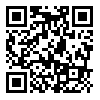Volume 6, Issue 4 (1-2026)
JFCV 2026, 6(4): 0-0 |
Back to browse issues page
Download citation:
BibTeX | RIS | EndNote | Medlars | ProCite | Reference Manager | RefWorks
Send citation to:



BibTeX | RIS | EndNote | Medlars | ProCite | Reference Manager | RefWorks
Send citation to:
Mahdnejad H. Analysis of the Zero Waste City Knowledge Map: A Sustainable Future for Waste Management. JFCV 2026; 6 (4)
URL: http://jvfc.ir/article-1-471-en.html
URL: http://jvfc.ir/article-1-471-en.html
Seyyed Jamaleddin Asadabadi University , h.mahdnejad@sjau.ac.ir
Abstract: (646 Views)
A zero-waste city is a necessity due to the reduction of environmental pollution, saving natural resources and improving the health of the community, maintaining the balance of ecosystems and coping with the climate change crisis. On this basis, the aim of the present study is to analyze the knowledge map of the zero-waste city as a sustainable future for waste management using the scientometric method. The present study is of an applied type based on scientometrics. The statistical community includes research conducted on the zero-waste city in the period from 1978 to 2025 in the Scopus scientific database. Vosviewer software was used to analyze the research data. Based on the density of the co-authorship network of the zero-waste city vocabulary, there are 93 active authors who are classified into 11 clusters. Based on the co-occurrence analysis of zero waste city terms, the most frequent terms include waste management (117 times), zero waste (116 times), recycling (60 times), sustainable development (60 times), municipal solid waste (58 times), circular economy (55 times), China (47 times), and solid waste (40 times). Based on the co-occurrence density map of terms, there are 331 keywords that are classified into 9 clusters. Based on the co-occurrence overlap map of terms, the time course of the evolution of zero waste city concepts and terms is classified into seven time periods consisting of 2014-1978; 2014-2016; 2016-2018; 2018-2020; 2022-2020; 2022-2024; and 2025. Since 2022, emphasis has been placed on concepts such as greenhouse gas and carbon emissions, household waste, construction waste, material reuse, greenhouse gases, Internet of Things, technological development, circular economy, digitalization, smart city, food waste, environmental pollution, material flow, low carbon, green economy, carbon reduction, carbon sequestration, carbon emission reduction, pollution reduction, etc.
Type of Study: Research |
Subject:
Geography and Urban Planning
Received: 2025/05/31 | Accepted: 2025/11/8
Received: 2025/05/31 | Accepted: 2025/11/8
Send email to the article author
| Rights and permissions | |
 |
This work is licensed under a Creative Commons Attribution-NonCommercial 4.0 International License. |





